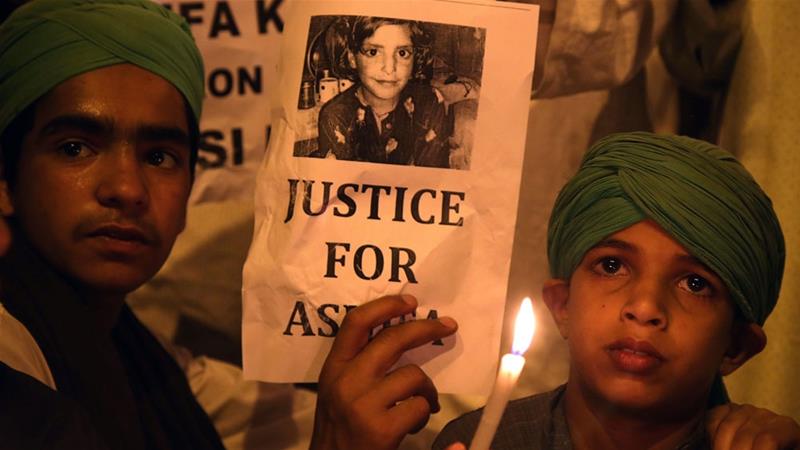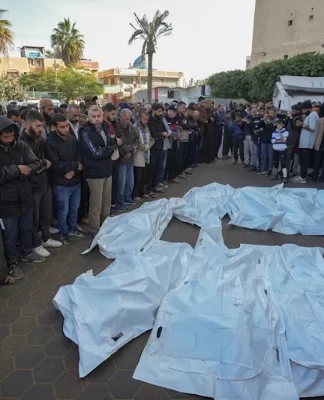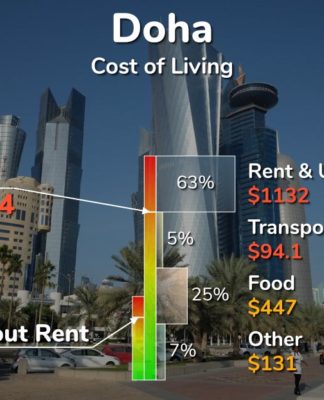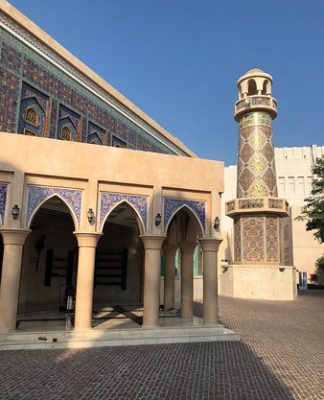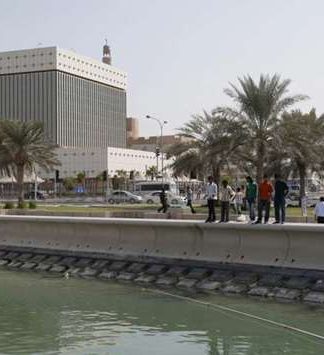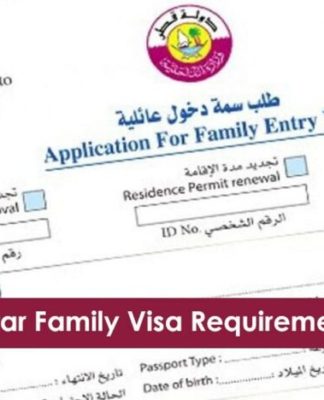Seven men and a minor are accused in the gang-rape case that has caused outrage in India.
![Accused plead 'not guilty' in Asifa gang-rape case The gang rape and brutal murder of Asifa has caused outrage [Jaipal Singh/EPA]](https://www.aljazeera.com/mritems/imagecache/mbdxxlarge/mritems/Images/2018/4/16/3ef222d336f346ca95827bab1ea0a7de_18.jpg)
Seven men and a minor accused of involvement in the gang rape and murder of eight-year-old Asifa Bano in Kathua in Indian-administered Kashmir have appeared in a local court.
The accused pleaded not guilty on Monday.
A group of lawyers had earlier tried to block police officials from lodging charges against the accused at a courtroom in Kathua town in Indian-administered Kashmir.
The men charged with the crime pleaded not guilty and asked for a Narcoanalysis (NARCO) test. NARCO is a technique used by Indian investigative officials where the suspect is injected with a dose of “truth serum” or sodium pentothal in an attempt to elicit a confession.
Those accused include policemen who are suspected of destroying evidence.
Sanji Ram, the main accused, said in court on Monday that the charges were a conspiracy against him. Ram was the custodian of the Hindu temple where Asifa was held captive and raped by several men for three days before being killed in January this year.
On Monday, the accused also said they wanted the probe to be transferred from the state police to the Central Bureau of Investigation.
“The accused told the court that a NARCO test should be done and they are ready for a NARCO test,” counsel Ankur Sharma told reporters outside the court.
The next hearing is slated for April 28.
|
|
Also on Monday, the Supreme Court, while hearing a petition seeking transfer of the trial outside the state, asked the government of Jammu and Kashmir to respond while directing it to provide adequate protection to Asifa’s family and lawyer.
“Ideally, the adjudication of a case should happen in an environment which is free from prejudice and bias. In this case, the state of Jammu and Kashmir is already a conflict zone,” Supreme Court lawyer Dushyant told Al Jazeera.
“This particular case also has very sensitive religious connotations. The lawyers who practise in that court and the bar association have even protested against the charge sheet being filed.
“The Bar and the judges of any court have a delicate relationship. If an influential part of the bar has such strong opinions about how a case should be conducted, it’s problematic. The matter has already taken a political colour. It’s clear that the trial, if it is to be free from bias, should be transferred out of the state and there is ample precedent for this,” Dushyant added.
Deepika Rajawat, the lawyer representing the girl’s family said she is facing death and rape threats from supporters of the accused.
“Today, I don’t know; I am not in my senses. I can be raped, I can be killed and maybe they won’t allow me to practise in court. They (have) isolated me, I don’t know how I can survive,” Rajwat told Indian news agency ANI.
The lawyer in Kathua also said she is branded as “anti-Hindu”.
Activists say Hindu right-wing groups in the state are attempting to divide the state on religious lines.
|
|
Hindu groups back the accused
According to details in the charge sheet filed by the crime branch of the Jammu and Kashmir state police, the abduction, rape and killing of the girl was part of a bid to punish the Gujjar Bakarwal nomadic Muslim community from which Asifa hailed, and drive them away from Hindu-dominated Kathua.
Protesters affiliated to a Hindu right-wing group, including members of the ruling party the BJP, demanded the release of the accused earlier this year.
Lal Singh and Chandra Prakash Ganga, two ministers from India’s ruling party who attended a rally to support the accused, have since resigned after massive outrage.
Asifa’s father, Mohammad Yusuf Pujwala, told the New York Times that he believes his daughter was killed by the Hindu men for the sole purpose of driving her people away.
Following the enactment of tougher anti-rape laws in 2013, rapists in India are liable to life imprisonment and even the death sentence in the rarest of rare cases.
On Sunday, demonstrations against rape and sexual violence were held across Indian cities, New Delhi, Mumbai, Bengaluru and Trivandrum where many protesters asked for Asifa’s rapists to be hanged.
SOURCE: AL JAZEERA NEWS










